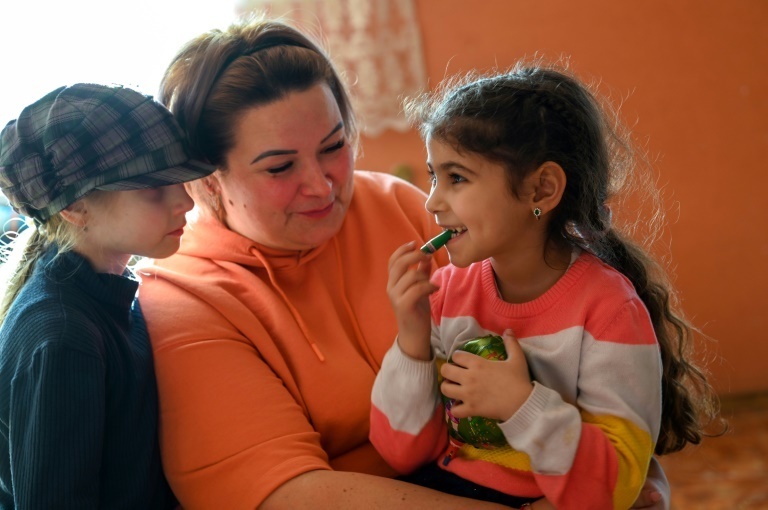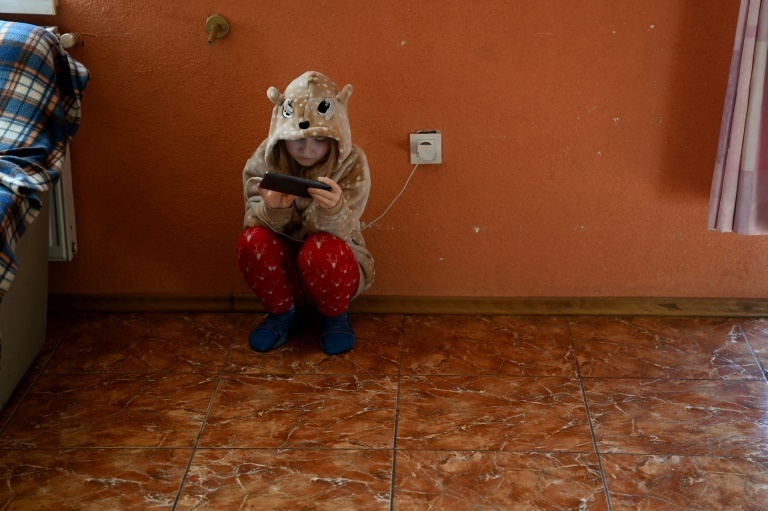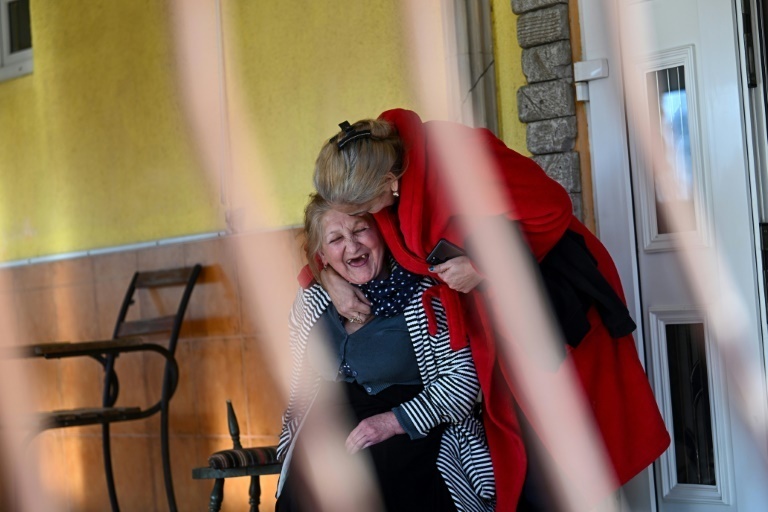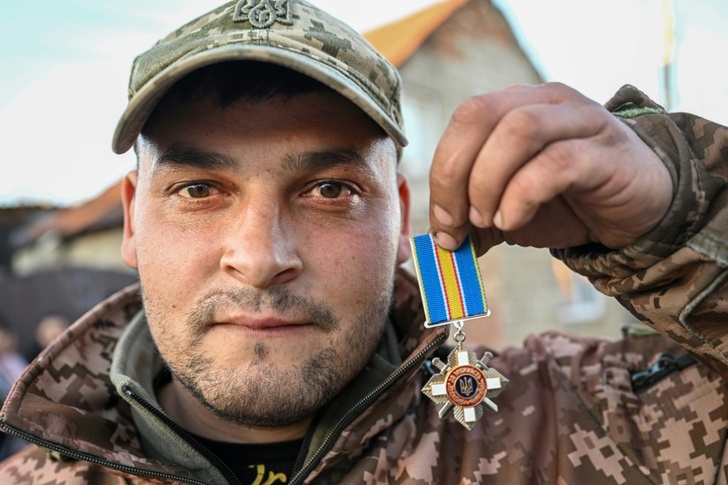In the ramshackle, predominantly Roma Radvanka district of Uzhhorod in western Ukraine, a soldier from the beleaguered minority proudly showed off a bravery award signed by President Volodymyr Zelensky.
With shrapnel from Russian bombs still lodged in his arm from fighting around Mariupol, 31-year-old Viktor Ilchak told AFP he "almost died four times" during an eight-month spell on the war's frontlines.
The bravery of soldiers like Ilchak and Roma groups helping Ukrainian refugees are chipping away at ingrained prejudices about the minority, say Roma in Uzhhorod.
"At the front it doesn't matter if you are Roma or not, we considered each other brothers," said the father-of-four.
"Many wondered whether Roma who can't read or write can fight for the army -- they were all surprised that Gypsies are fighting," said Ilchak, a tank mechanic with the 128th Transcarpathian Brigade.
"I told them -- if I am Ukrainian, I have to fight for Ukraine," he said outside his house in a potholed street where several passing cars carried military membership signs on their windscreens.
"They said the Roma don't serve, but they are wrong! In times of need we can be counted on!" shouted his father-in-law Janos Tokar, 58.
- 'Amazing' help -

"A lot of people have begun saying on social media things like, 'Oh Roma people helped Ukrainians, this is amazing,'" said Anzhelika Bielova, head of the Voice of Romni group.
Its mission is to help young Roma women gain skills and stable jobs, but since the invasion it has also been organising aid for non-Roma refugees.
Groups like Bielova's estimate that there are 400,000 Roma scattered across Ukraine.
Already facing entrenched poverty, discrimination and segregation, the war brought new trauma with an estimated 170,000 Roma fleeing from Ukraine's east and south.
The flow of often undocumented Roma refugees was accompanied by reports of discrimination at border crossings into neighbouring countries and in humanitarian aid queues.

"A lot of our team are internally displaced persons (IDPs), we know how hard it is to live in a new place," said Bielova, 27, a refugee from Zaporizhzhia herself.
- Changing minds -
In Radvanka where many makeshift houses have corrugated metal roofs and noisy goods trains thunder close by, Eleonora Kulchar runs a refugee shelter that is open to all regardless of background.
The 54-year-old initially launched the facility in March to help her "own people", who she saw not getting help at Uzhhorod train station as they fled, before receiving all comers.
"Those who have seen Roma defending Ukraine or helping Ukrainian refugees are changing their minds about us," said Kulchar, the head of a Roma education organisation called Blago.
Almost half the shelter's 70 residents are non-Roma families from Mariupol, Berdyansk, and Kherson.
Upstairs a family from Kherson told AFP they were taken in in November after failing to find a room in Uzhhorod where most hotels are fully occupied by IDPs.
"We were a bit afraid, as before we had no contact with Roma people, but then we saw that everything is ok," said Veronika Komarnitskaya, 37.
"They are just like us," said her mother Lyudmyla Chukhran, 62.

"The war has brought us closer together, before I would never have believed that could happen," she said while bouncing a Roma child on her knee in the shelter's common room.
Still, Bielova sounded a cautious note about how long the rapprochement will last.
"After we win the war there is much work to do. We have to educate Ukrainians about human rights and dignity if we want to join the European Union," she said.
pmu/kym/fg
© Agence France-Presse
Your content is great. However, if any of the content contained herein violates any rights of yours, including those of copyright, please contact us immediately by e-mail at media[@]kissrpr.com.
Source: Story.KISSPR.com

